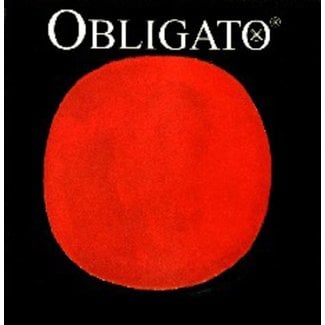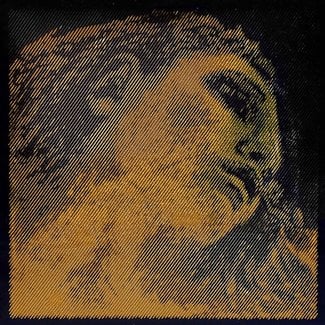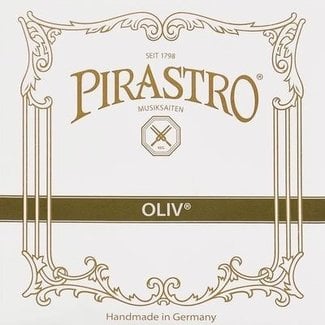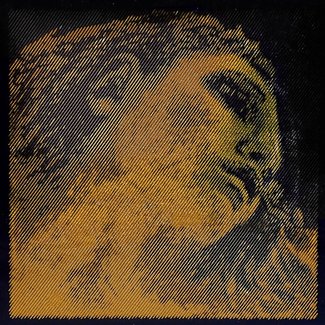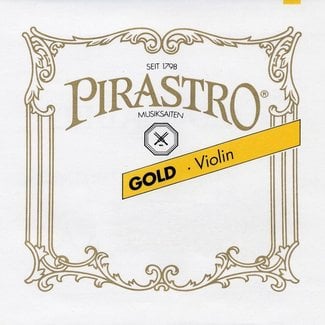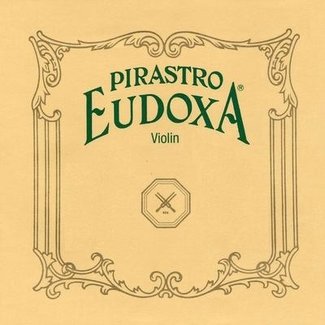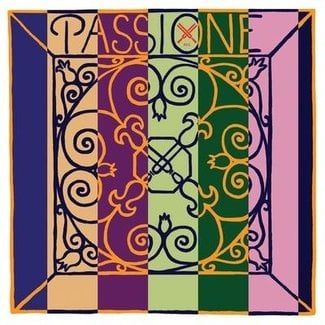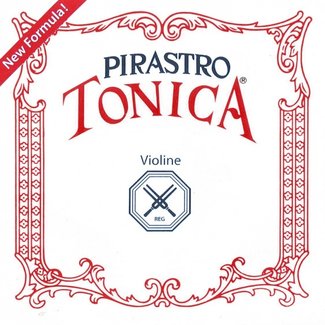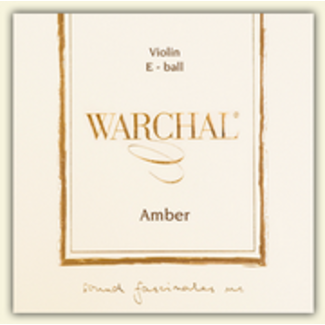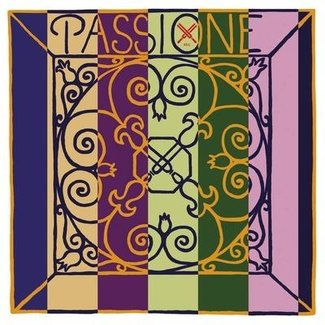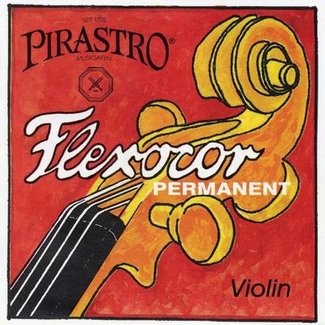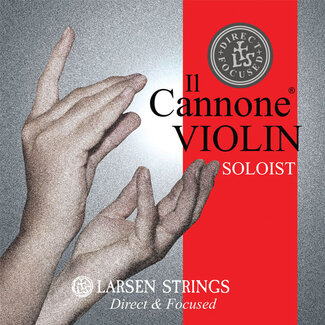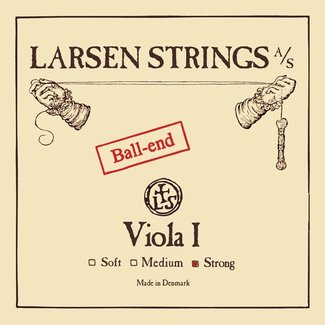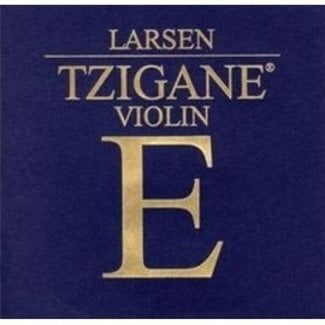Strijkinstrumentenshop.nl verkoopt alle type snaren van de meest gangbare merken zoals Pirastro, Thomastik-Infeld, D'Addario, Jargar, Larsen, Warchal, Optima, Westminster, Lenzner, Hill, Prim en Corelli voor de strijkinstrumenten viool, altviool, cello en contrabas. Ieder merk heeft zijn eigen technologie en fabricageprocess hoe de snaren geproduceerd worden en voor bespelers van strijkinstrumenten valt er heel wat te kiezen. In de onderstaande rubrieken enkele historiche informatie van de eerder genoemde merken (voorlopig nog even in het Engels).
Pirastro

From Italy to Germany
|
Today’s PIRASTRO GmbH was founded in 1798 by Giorgio Pirazzi as “Giorgio Pirazzi and Sons", string-maker from Italy, with representatives in Rome, Naples and Padua. Pirazzi was a Miller’s son born in 1766 in Domodossola in Italy and was sent as a 14-year old to string makers in both Naples and Rome where he was to learn the craft of the manufacture of strings. On completing his apprenticeship, Pirazzi returned back to his home on the shores of Lake Maggiore. Here he met Italian families who had experienced good fortune by moving to Frankfurt and now were returning to their old homes for the holiday period. |
These families invited Pirazzi to visit them in Frankfurt. Pirazzi accepted their offer and went even one step further, settling in Germany. Life was not easy for new arrivals in the city, however, as the Guilds were refusing to admit new craftsmen in order to protect the existing livelihoods of those in the City. Such measures suited one of the region’s princes - the Count of Isenberg - who encouraged the rejected Italians to settle in his own wealthy county of Offenbach, just south of Frankfurt. Giorgio Pirazzi seized this opportunity and eventually received an invitation from a wealthy Offenbach landowner to found the factory on his land and thus pursue his craft. |
Pirazzi becomes Pirastro
| The business grew slowly and steadily and in the 1890s Gustav Pirazzi (the grandson of the founder) invited his friend, Theodor Strobel, to join him as a business partner. | The partners combined the first four letters of their names to create the PIRA-STRO brand which is still so well-known today. Strobel died in 1922 and Gustav’s son Hermann took over the firm, leading it until his death in 1976. |
1970 until today
|
A growth in demand necessitated the need for a second production site in Germany in the early seventies. Following this, in 1992 Eva Pirazzi, daughter of Hermann, and her husband, Volker Müller-Zierach, took on the leadership of the firm. |
Today Eva and Volker work with their adult children Annette and Henning, both of whom joined the firm following the completion of their studies and experiences working in other companies across Europe. Henning and Annette are now the sixth generation of the family to lead the firm. |
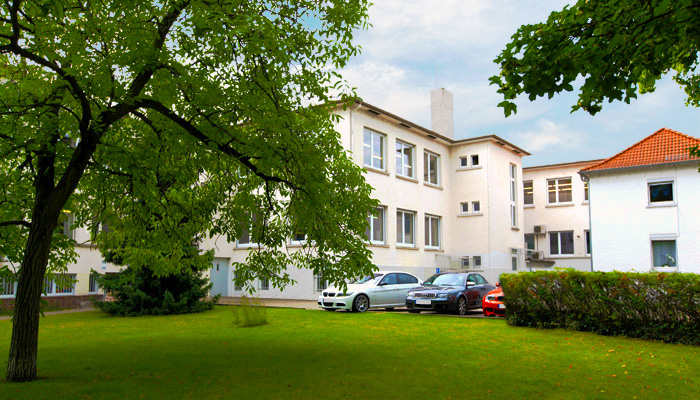
Thomastik-Infeld
Thomastik-Infeld can look back at a long history full of change. Even before the beginning of the First World War Dr. Franz Thomastik (luthier and Doctor of Philosophy) dealt with all raw materials for potential use in making strings. Starting in 1919 he did his systematic research into materials together with Otto Infeld, an engineer. The cooperation of the company founders first occurred as a joint effort of two single enterprises. The home of both companies was in shared premises in the 6th municipal district of Vienna. In 1921 the foundation of the joint company “Dr. Franz Thomastik and employees” followed.
Eventually Dr. Thomastik chose steel as material for the development of new strings. In the production of piano strings, there was already plenty of knowledge about steel wires which were struck by hammers. The major problem at that time was to make the steel wire usable for string instruments. Therefore, a specific processing technology was necessary. The advantages of this material lay in the resulting tuning stability, the imperviousness to climatic changes, as well as in its significantly longer lifespan. On the basis of the Austrian patent (No. 69060 – flat wire winding of Dr. Thomastik filed August 15th, 1914) and after many years of joint effort steel strings had been successfully manufactured. In 1926 strings of respectable quality were developed for all string instruments, from the violin to the contrabass.
A document dating from the year 1942 shows that at the beginning of the 1930s 50 percent of the production of strings was exported, and that Great Britain and the United States of America were the most important markets. The outbreak of the Second World War and the resulting destruction of the company through the numerous allied bombardments of the town disrupted the business. After the end of the war and the reconstruction, production was resumed in June 1946. In 1950 production levels reached those of the prewar period again.
Right from the beginning the red violin body with the curved initial „T“ was the defining logo of the company.
When Dr. Thomastik died at the end of 1951, Otto Infeld acquired the whole company. After his death in 1965 Margaretha Infeld took over the company together with her son Peter Infeld. Under the guidance of Margaretha Infeld the company not only found its present-day base in the Diehlgasse, but also became the leading supplier of strings for stringed instruments. Margaretha Infeld played an active role in the company until 1994 when her son Peter Infeld took over the sole management of the company. He led it according to family traditions up to his unexpected death in April 2009.
The time after 1950 was marked by a growth of the company. The unrivalled striving of the founders for the highest quality formed the basis for that crucial innovation which was the starting point for the success of Thomastik-Infeld. Right up to the present day this innovation has significantly contributed to the company’s success: a string with synthetic core and flat wire winding. This product – the Dominant string – is probably the most-played violin string worldwide. Itzhak Perlman and Pinchas Zukerman had already adopted this string innovation when they were unknown violin students. Later both became soloists of world rank.
Currently, Thomastik-Infeld and its almost 200 employees produce more than 2,000 various strings for stringed and plucked instruments in the very heart of Vienna, the City of Music. 97 % of the yearly produced units are exported to more than 80 countries all over the world. A strong international focus and the continuing enlargement of business relations remain an essential component of the strategy of Thomastik-Infeld.
D'Addario
The D'Addario family of string-makers originated in the small Italian town of Salle in the province of Pescara. A baptismal form from 1680 names a Donato D'Addario as a cordaro, where cordaro is a regional variant of Italian cordaio meaning "maker or seller of ropes and strings". From other historical records it appears that the town's primary occupations were farming and string-making. At the time strings were made of sheep or hog gut, and making them was a laborious process.
After an earthquake devastated the town in 1915, two brothers-in-law, Rocco and Carmine D'Addario emigrated to Astoria in Queens, New York in an attempt to expand their market, importing and selling the strings made by their family in Salle. By 1918 Rocco had returned to Salle, and Carmine, who later, known as Charles, began making his own strings in a small shop behind the family home. Still made from gut, the process of making strings involved all members of the family.
The development of nylon by DuPont during World War II produced a major change in the family business. Sent samples by Dupont in 1947, the D'Addarios immediately began experimenting with this new material, consulting with many of its regular customers in developing the strings.
Originally located in Lynbrook, New York, the business continued to expand and in 1994 moved to its current facility in Farmingdale, New York. The company is still owned and operated by the D'Addario family, with 13 family members among the 1,000 employees of the company.
Current key executives include John D'Addario III (CEO), Jim D'Addario (Chairman of the Board and Chief Innovation Officer), Robert D'Addario (President/Managing Director, CTG) Suzanne D'Addario Brouder (Foundation Director).[3]


